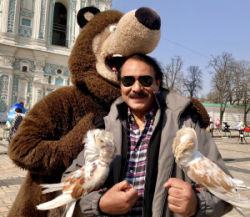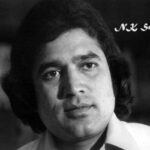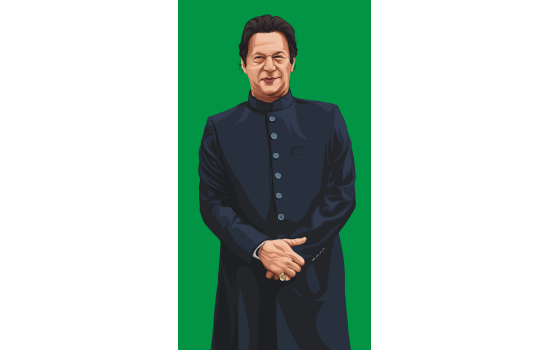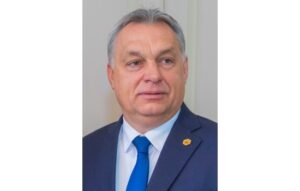Is the Pakistani army, faced with a tumbling economy, dissensions within in its puppet coalition government, rising public outrage against its stranglehold over the people, and successive electoral victories scored by Imran’s Pakistan Tehreek-e-Insaf (PTI), having a rethink? Will the generals buckle in front of Imran’s spreading tentacles?
 By Akhil Bakshi
By Akhil Bakshi
What’s brewing in Pakistan? The judiciary, usually subservient to the army generals, has recently given two major decisions in favour of Imran Khan. On September 15, Chief Justice Athar Minallah of Islamabad High Court released on bail Shahbaz Gill, Imran’s close aide and a former member of his cabinet, arrested on charges of sedition. On August 30, the same court had suspended a ban imposed by the Pakistan Electronic Media Regulatory Authority (PEMRA) on live broadcast of Imran Khan’s speeches after he publicly threatened a female judge and Islamabad police for allegedly torturing Shahbaz Gill in police custody.
Is the army, faced with a tumbling economy, dissensions within in its puppet coalition government, rising public outrage against its stranglehold over the people, and successive electoral victories scored by Imran’s Pakistan Tehreek-e-Insaf (PTI), having a rethink? Will the all-powerful military buckle in front of Imran’s spreading tentacles? Are the generals planning to cut a deal with Imran?
Imran Khan should consider his ouster in a no-confidence vote in April 2022 as a blessing in disguise. During his prime ministership the economy was collapsing. Prices of essential commodities rose sharply. The fuel subsidy was ruining the state treasury. Following Russia’s invasion of Ukraine, the country faced food and energy crises. Imran’s approval rating was at rock bottom. Had he been allowed to continue until the next elections, he would have been abolished for good.
Restless chief
But the restless army chief, General Qamar Javed Bajwa, fearing a sack, was in a hurry to oust the PTI government. To serve the ambitions and power greed of its top general and his cronies, the army establishment ganged up with a docile, but impatient, Shehbaz Sharif, head of Pakistan Muslim League-Nawaz (PML-N), and other opposition parties to create a constitutional crisis that saw Imran Khan and his PTI ejected from office.
Much of the faults of the PTI’s economic policies fell on the new coalition government, the Pakistan Democratic Movement (PDM). The Pakistani rupee lost over a third of its value. Inflation hit a record 42 percent. Government bonds traded at junk value. Massive flooding inundated a third of the country – adding to the woes of the incumbent government.
The army, with 1.5 lakh crores invested in businesses, from cement plants to cereal factories, is sensitive to economic downturns. Imran Khan, with his strong Chinese connections, is projected, rightly or wrongly, as the only hope to bail out the economy.
Call for fresh elections
Soon after being removed from office, Imran had demanded fresh elections. Had the army establishment and the short-sighted leaders of PDM – Shehbaz Sharif and PPP’s Asif Ali Zardari – heeded to Imran’s demand, the PTI would probably have been wiped out in the elections. However, they made a political miscalculation and now find themselves in a quicksand.
Imran, the Casanova, did not, as expected, flee Pakistan and return to his Bohemian ways. He did not hit the beaches and nightclubs of Europe. Instead, he hit the streets of Pakistan making stinging attacks on the invasive role of the army establishment in politics and governance, exposing their corruption and insubordination of the Constitution and rule of law – though he himself rode to power on the army’s back. With deft use of social media, his calls for unfettered democracy and true parliamentary government got resounding support of the youth, comprising 60 percent of Pakistan’s population, and women.
In the July by-election to the Punjab provincial assembly, PTI soundly defeated PML-N in its stronghold and took power. This was followed by a landslide victory in NA-245, a seat in Karachi, the pocket borough of Pakistan People’s Party (PPP) and Muttahida Qaumi Movement (MQM). Imran’s PTI, now ruling in the provinces of Punjab, Khyber Pakhtunkhwa, and Gilgit-Baltistan regions, has shown that it is the only political party with a pan-Pakistan footprint and that it can win elections without the support of the army. This is giving the threatened generals sleepless nights.
Making matters worse for the generals in Rawalpindi is the infighting within PML-N, the party that leads its puppet regime. Nawaz Sharif, the founder of the party and former prime minister now in self-exile in London, and his brother Shehbaz Sharif, the current prime minister and party president, are at loggerheads. Nawaz, himself a puppet of the army in 1980s, now advocates army distancing itself from politics – while brother Shehbaz reveres the army and its support.
Disagreements between Sharif brothers
Disagreements between the brothers have also emerged over policy issues. On August 15, a meeting, chaired by Nawaz Sharif, was held through a video link, to decide on the revision of diesel and petrol prices. Prime Minister Shehbaz, former premier Shahid Khaqan Abbasi, Nawaz’s daughter Maryam, former finance minister Ishaq Dar, Finance Minister Miftah Ismail and other senior leaders of the PML-N participated in this meeting. Nawaz was in favour of reducing the prices. Miftah, while briefing the participants on the economic situation, suggested increasing the prices. At Nawaz’s behest, Dar, also self-exiled in London, blasted the government’s economic policies. According to Kunwar Khuldune Shahid, a Pakistan-based correspondent for The Diplomat, Abbasi cut him short and admonished Dar, booming: “If you think that we and our government are not doing a good job, then why don’t you gentlemen, who have been sitting in London for so long, return to Pakistan and take charge of the country and the economy.” At this, Nawaz Sharif is reported to have banged the table in anger and left the meeting. The government hiked the prices of petrol and diesel. Feeling side-lined and marginalised, both Nawaz and his daughter, Maryam, have distanced themselves from the government.
Submerged under water
While the generals nurse their headaches, Pakistan is submerged under water. The unprecedented floods have killed 1,400 people, displaced 33 million, and damaged 1.7 million homes. Half of the cotton crop has been destroyed. This coming winter it will be impossible to sow the water-logged fields with wheat. It is estimated that the floods will cost the country $30 billion, or 9 percent of its GDP.
Before the government steers Pakistan into penury, before the country defaults on its international loans, before imports get choked, before the rupee becomes worthless, before inflation skyrockets, before the government officials and soldiers stop being paid their salaries, the army will have to strike a deal with Imran Khan. Capitulating to Imran’s demand, they will call for an early national election – in return for an honourable exit for General Bajwa.
On September 12, Imran Khan stated in a television interview that General Bajwa’s tenure as the army chief should be extended until his successor is appointed by the new government after elections. The deal-making has begun.
(The views are the author’s own, and The News Porter bears no responsibility for the same/Main Image of Imran Khan by Creative Hatti from Pixabay)
Also, by the same author: Of Ukraine, Russia and the Nazis: The lessons not learnt from history – THE NEWS PORTER
Akhil Bakshi is the author of ‘Ukraine: A Stolen Nation’












The article is an eye opener with internal strategies brought out to the fore front by the author. Several arrangements to sustain and survive will have to be accepted by the ruling govt which is crippled financially with natural and unnatural calamities
The foreign aid expected would be too meagre to absolve the losses but joint effort by ruling party, Opposition and army can at best calm the situation
Mr Akil…I am Mahadevan G worked in Cuttack, Kerala and coimbatore, in Tamilnad sales office from 1978 to 1992. In 1992 transferred to H.O ..under Q.Tech sales with Mr.Lahiri, Mr.Jain.
Your article is very good. I liked it. Happy to see u as a journalist.
A very insightful and well researched article. Thanks
Wonderful inside story and my imagination and forecast is coming true . So long as Pakistani army dominates there is no way collapse of Pakistan can be prevented. Indian diplomacy should bargain for Kashmir by supporting stability of Pakistan . A difficult task but achievable.